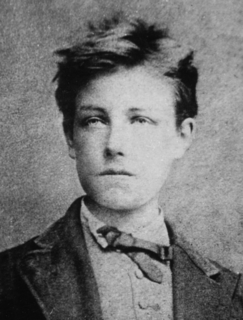A Quote by Pope John Paul II
Related Quotes
Freedom is necessary for two reasons. It's necessary for the individual, because the individual, no matter how good the society is, every individual has hopes, fears, ambitions, creative urges, that transcend the purposes of his society. Therefore we have a long history of freedom, where people try to extricate themselves from tyranny for the sake of art, for the sake of science, for the sake of religion, for the sake of the conscience of the individual - this freedom is necessary for the individual.
Love...no such thing. Whatever it is that binds families and married couples together, that's not love. That's stupidity or selfishness or fear. Love doesn't exist. Self interest exists, attachment based on personal gain exists, complacency exists. But not love. Love has to be reinvented, that’s certain.
To say ‘I love you’ one must first know how to say the ‘I.’ The meaning of the ‘I’ is an independent, self-sufficient entity that does not exist for the sake of any other person. A person who exists only for the sake of his loved one is not an independent entity, but a spiritual parasite. The love of a parasite is worth nothing.
Feuerbach ... recognizes ... "even love, in itself the truest, most inward sentiment, becomes an obscure, illusory one through religiousness, since religious love loves man only for God's sake, therefore loves man only apparently, but in truth God only." Is this different with moral love? Does it love the man, this man for this man's sake, or for morality's sake, for Man's sake, and so-for homo homini Deus-for God's sake?
We who are living in the west today are fortunate. Freedom has been bequeathed to us. We have not had to carve it out of nothing; we have not had to pay for it with our lives. But it would be a grave mistake to think that freedom requires nothing of us. Each of us has to earn freedom anew in order to possess it. We do so not just for our own sake, but for the sake of our children, so that they may build a better future that will sustain over the world the responsibilities and blessings of freedom.
The "name" of the Most Holy Trinity is in a certain way impressed upon everything that exists, because everything that exists, down to the least particle, is a being in relation, and thus God-relation shines forth, ultimately creative Love shines forth. All comes from love, tends toward love, and is moved by love, naturally, according to different grades of consciousness and freedom... The strongest proof that we are made in the image of the Trinity is this: only love makes us happy, because we live in relation, and we live to love and be loved.
Be creative in that sense and your creativity will become an offering to God. God has given you so many gifts, Garima; something HAS to be done just in deep thankfulness. But remember: with no motive, not as a means but as an end unto itself. Art for art's sake, and creation for creation's sake, and love for love's sake, and prayer for prayer's sake.









































